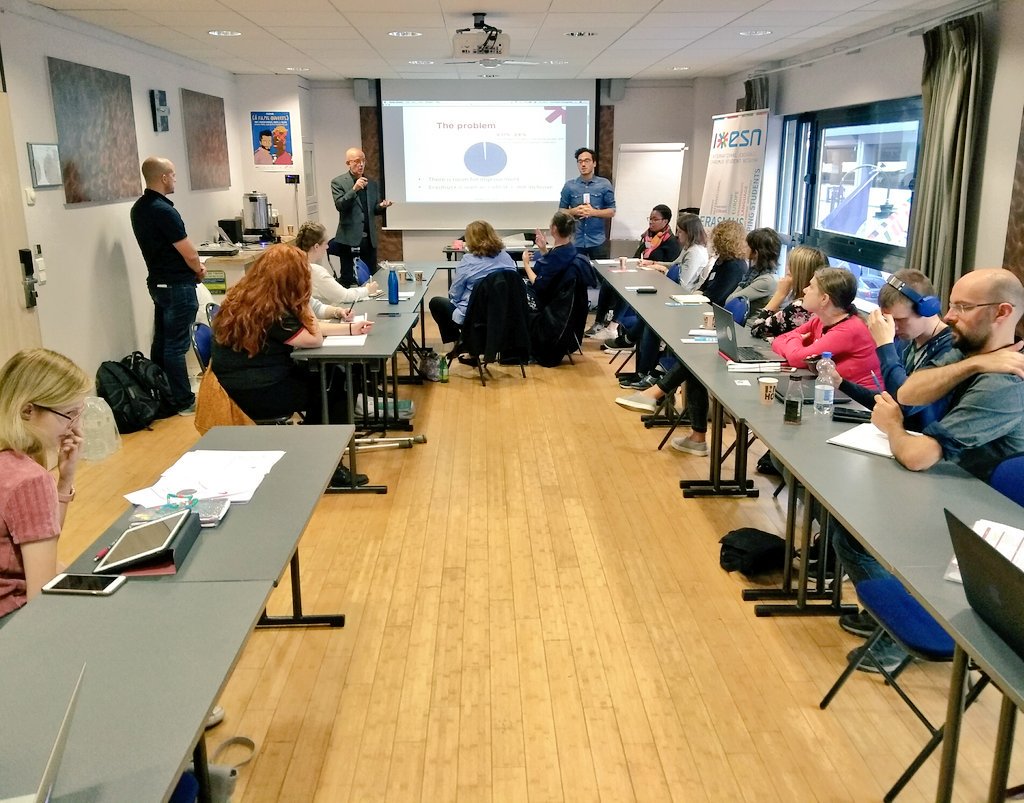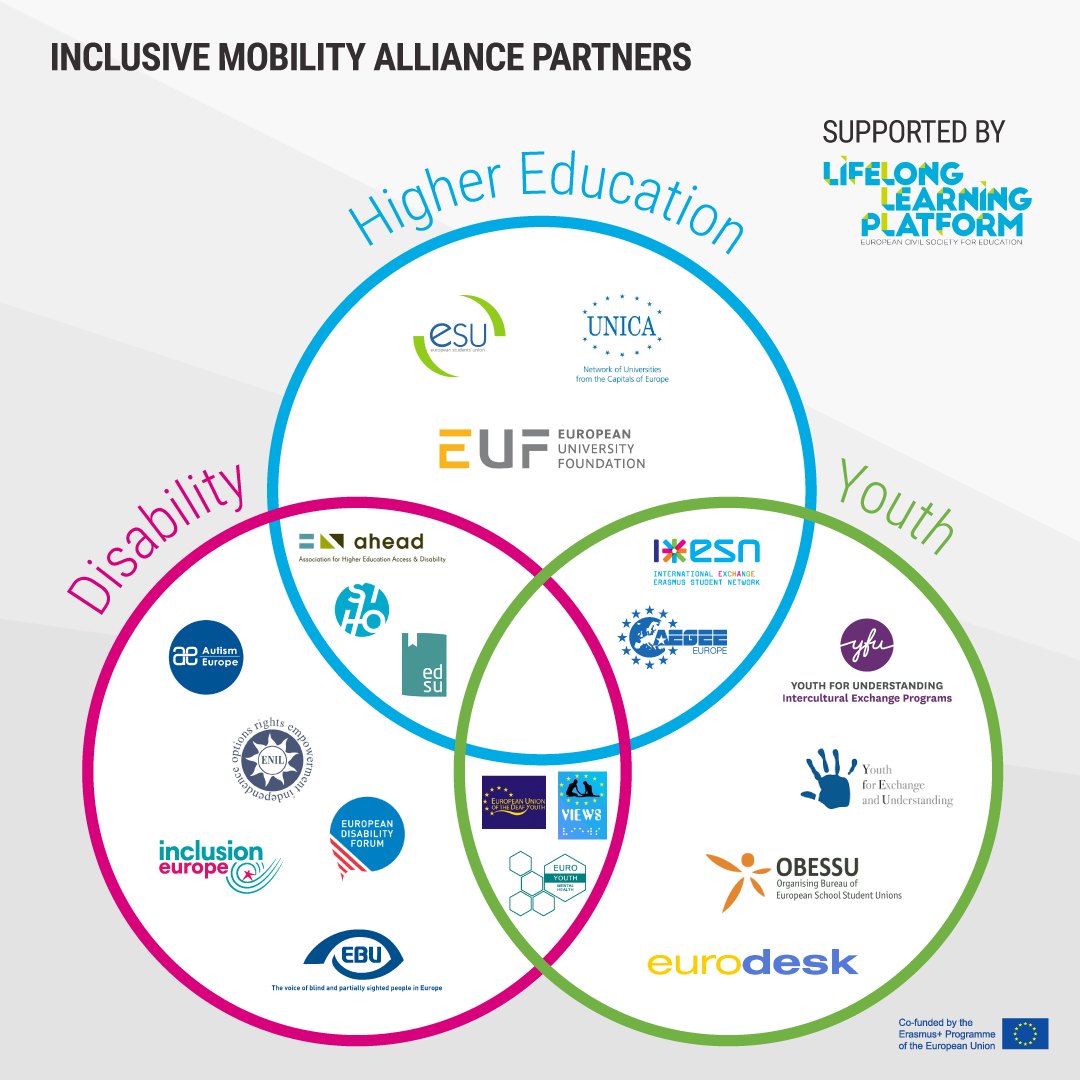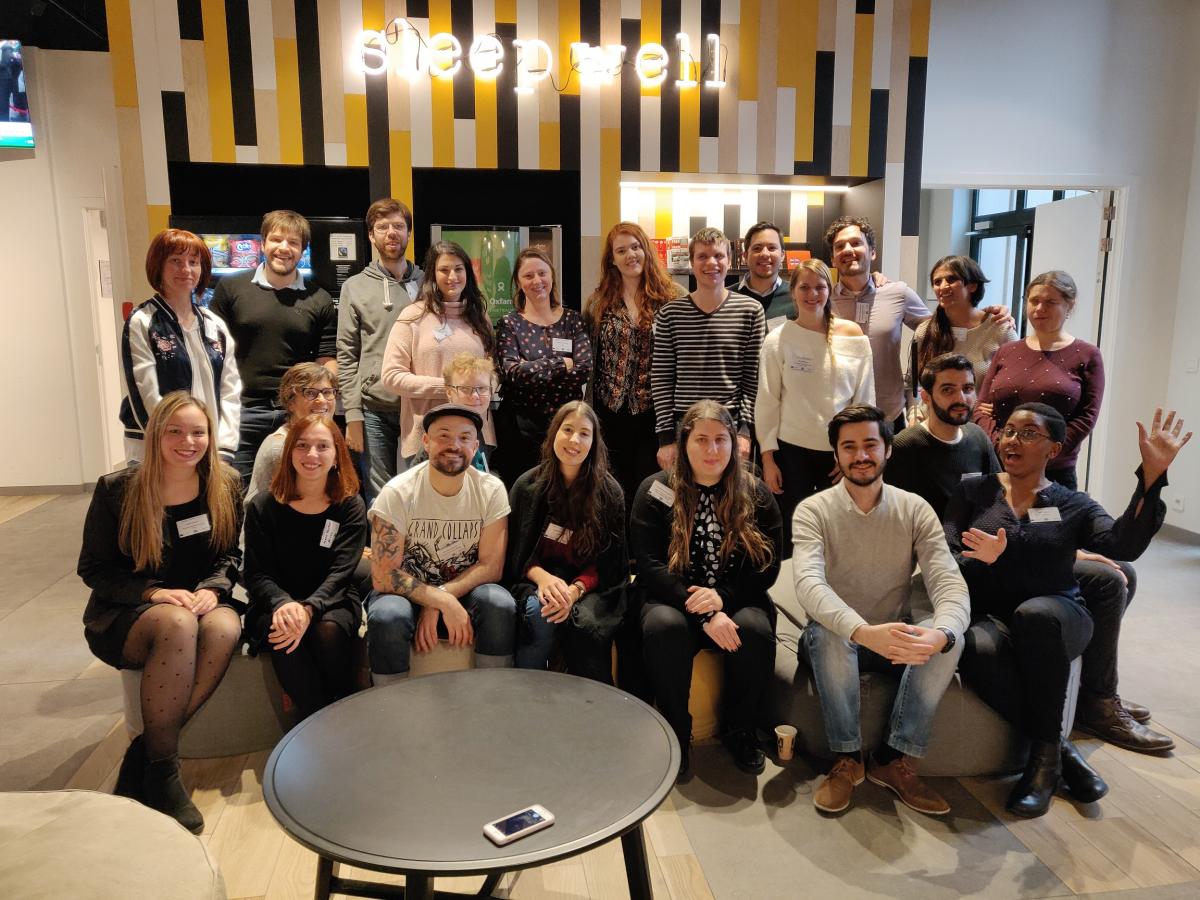
The Inclusive Mobility Alliance project has started!
Today we are kicking of the #Inclusive #Mobility Aliance with a 2-day training! Extremely excited to have so many experts in the room and discuss how we can truly make #ErasmusPlus more inclusive! #THISisESN #Inclusion #InclusiveMobility pic.twitter.com/sREUgxfSzE
— ESN International (@ESN_Int) 27 September 2018
On the 27th and 28th of September 2018, more than 20 organisations with expertise in the fields of Youth mobility, Higher Education mobility and Disability have gathered in Brussels to start discussing and defining what it means to organise an Inclusive Mobility (aka a mobility that is fully inclusive and allows everybody to take part in it, regardless of their socio-economic background).

Since 2007, the number of students with disabilities taking part in Erasmus+ has been almost stagnating while the number of young people experiencing Erasmus+ exchanges is increasing rapidly. The question of the inclusiveness of one of the flagship EU programmes has been raised much time over the past few years. Despite many efforts made, Erasmus+ is still considered by many as a rather elitist programme.
Only 0.14% of Eramus+ mobilities are by persons with special needs
⁉️Do you want to change the figures?#MobiAbility project is working on it
Encourage your #University to participate in this survey on support measures for #disabilities
https://t.co/Ktrns3PXWs@el_pais pic.twitter.com/VBdogtRlUu— MobiAbility Project (@MobiAbility_Pro) September 18, 2018
During a meeting organised at the European Parliament on the 5th of December 2017 and hosted by MEP Damiano Zoffoli (S&D), the stakeholders present agreed to create an alliance of organisations working on the topic of Inclusive Mobility.
During the first day, participants had the chance to get to know each other, discover the work of the other organisations as well as some of the good practices already existing on the topic, such as:
- SIHO and their website full of resources for students with disabilities in Flanders
- VIEWS International and their concept of Adapted EVS
- AHEAD and the guidelines for cooperation International Office - Disability Office
- ESN with the MappED! platform
They also defined the concept of Inclusive Mobility and brainstormed on the core elements that make mobility abroad fully inclusive.
During the second day, the partners received Lloyd Huitson, Policy Officer at the European Commission DG EAC, who introduced the EU Commission proposal for the next Erasmus programme 2021-2027, that is currently being discussed at the European Parliament. After a round of questions and answers about its Social Dimension aspects, participants worked in groups to identify what works and what doesn’t work currently in the Erasmus+ programme and came up with realistic solutions on how to improve the future Erasmus programme post-2020.
Second day of exchange at the launch of #inclusive mobility alliance to discuss barriers and good practices to enjoy mobility abroad in #higherEducation and #youthExchange for all.
#EramusPlus #disability #autism #autistic #EducationForAll #CRPD pic.twitter.com/FIjc9FJ91j
— Autism-Europe (@AutismEurope) September 28, 2018
On the 26th and 27th of November 2018, the IMA partners met a second time in Brussels. On the agenda of this second meeting:
- Finalising the recommendations to policymakers and stakeholders at EU and National level on how to make Erasmus+ more inclusive
- Finalising the Inclusive Mobility Toolbox
- Sharing useful contacts and dissemination tips
- Brainstorming on future activities to be carried out by the Alliance in 2019

During this second meeting, the IMA partners had the pleasure to receive the visit from the EAIE Access and Diversity Group, represented by its Chair Agnes Sarolta Fazekas. IMA partners have discussed potential cooperation with the EAIE (who organises every year the biggest European conference on internationalisation) and great inputs were received on the IMA draft recommendations.
The meeting was also the opportunity for more good practices to be shared among partners, with the EBU “Recommendations for students with visual impairment participating in international exchange programmes”. More information can be found on their website.
Partners will now meet again at the end of January for a conference at the European Parliament to promote their work to relevant stakeholders.
The Inclusive Mobility Alliance project is co-funded by JINT, the Flemish National Agency for Youth. For more information, please contact [email protected].

Follow ESN